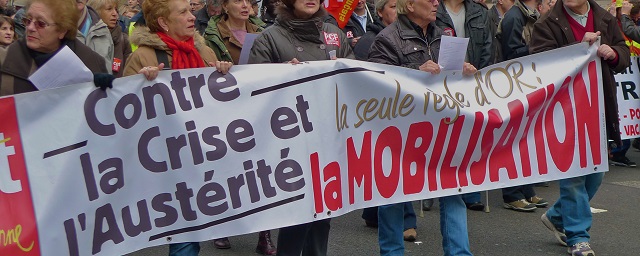Perched on a knoll rising gently above a man-made pond in Brussels’s stunning Parc Leopold sits the stately five-story granite building that once housed Europe’s first parliament. Years ago, that legislature began splitting time between Strasbourg, Luxembourg, and a sleek new building in Brussels.
The migration of the EU parliament is a fitting metaphor for a fast-moving trend that has taken hold on the Continent in the wake of its collapsing economies: the imposition of, and now the attempt to roll back, a series of measures to trim spending that Europeans often label, in a derogatory fashion, “austerity.” But after a period of pushback, pro-austerity forces are gaining strength by promoting responsible budgeting throughout the developed world.
Austerity, often known in the United States as “fiscal responsibility,” has stirred a heated academic and policy debate on both sides of the Atlantic. As austerity has been imposed by the European Union on the wayward, debt-laden countries on its periphery, in part on the basis of scholarly studies demonstrating its importance, many of those countries have bristled at its restrictions, as have left-leaning economists worldwide.
*Read the rest of the article here.
**The views expressed in this article are the author’s own and do not necessarily reflect The Corner’s editorial policy.






Be the first to comment on "Austerity and Its Discontents"